Where Singaporeans Can Still Buy A City Apartment For $184,000 — And Earn 5% Rental Yield. But Should You?
October 11, 2025
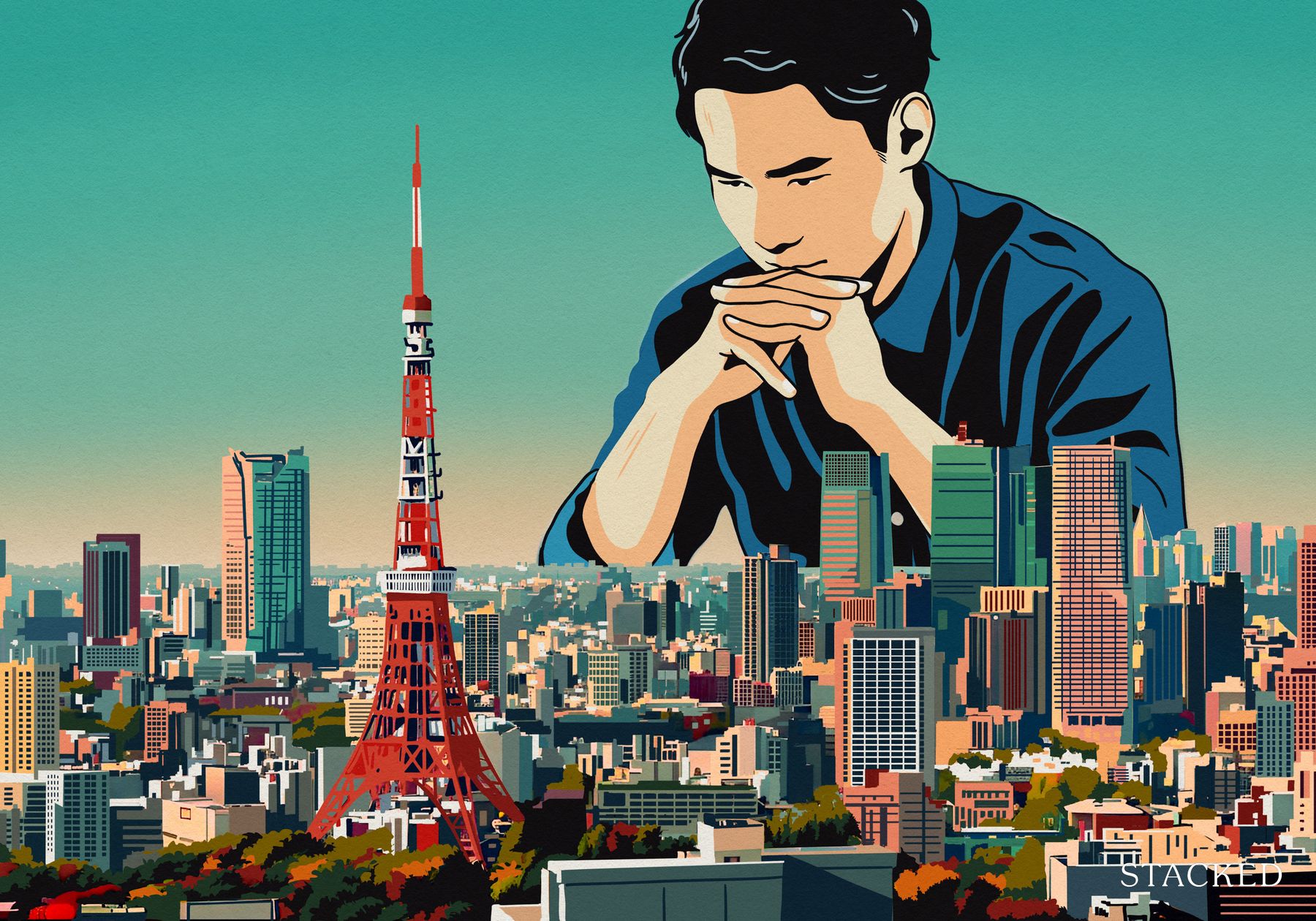
In recent years, Japan’s real estate market has quietly caught the attention of Singaporeans – not just as investors, but as people curious about how another country’s housing system works so differently from our own. From the streets of Tokyo to the towns of Hokkaido, property prices in certain regions are surprisingly accessible compared to Singapore.
Beyond central apartments and urban rentals, there has also been international buzz around akiyas: abandoned houses that sometimes sell for symbolic amounts. It’s a phenomenon unique to Japan, tied closely to demographic shifts and inheritance challenges.
So could Japan be an alternative home ownership path for Singaporeans? We’ll take a look at Akiyas to find out.
The Allure of Akiyas
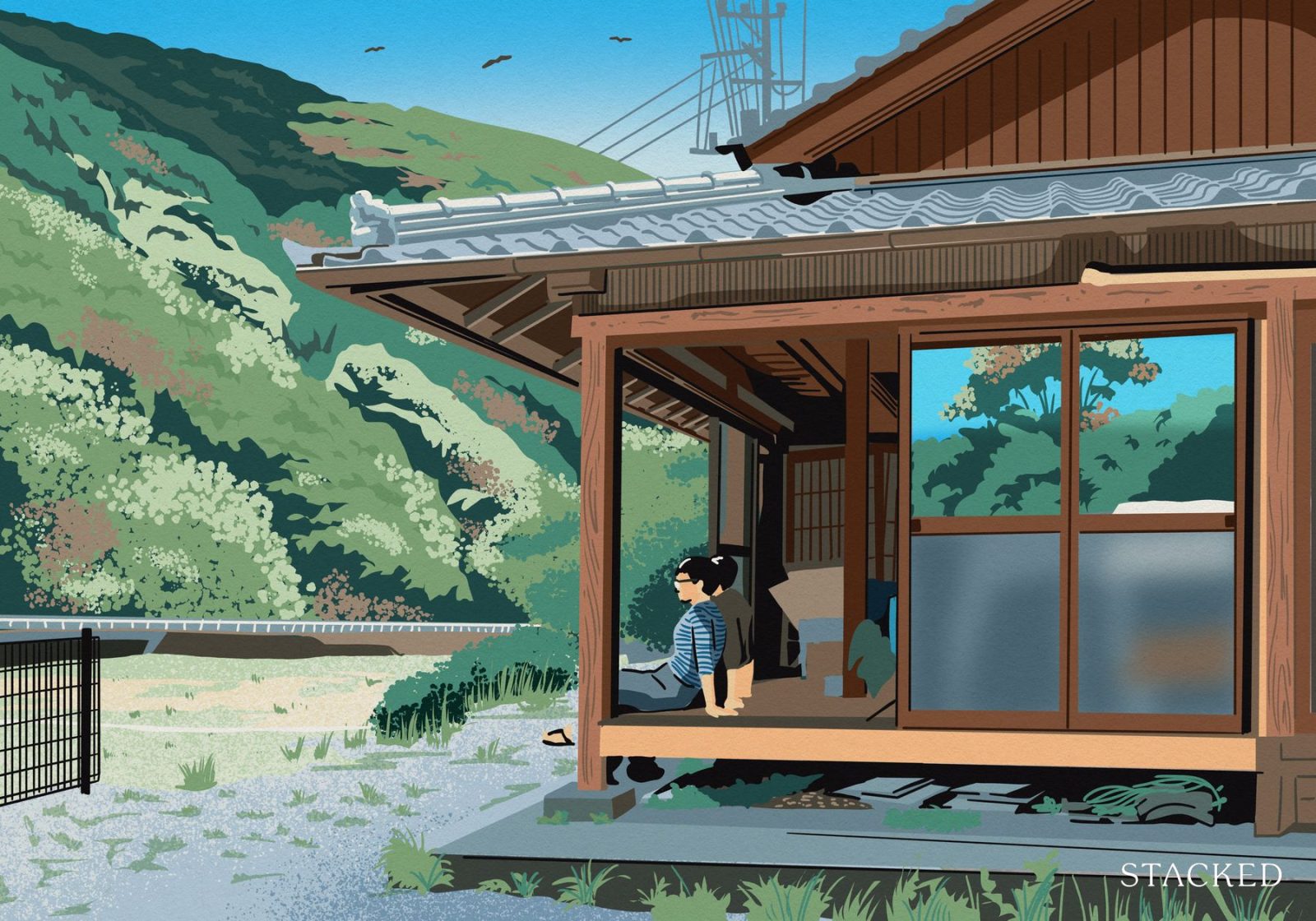
An Akiya is an abandoned or vacant property, and Japan has millions of them. Due to rural depopulation, many houses are left behind as younger generations migrate to the cities, and inheritance complications mean they sit empty for years.
Some local governments are practically giving them away, offering them for as little as ¥100 (about S$1) plus renovation costs. While this isn’t the case for all Akiyas, the entry price becomes attractive.
That said, most Akiyas are in rural areas with low rental demand, so they’re often better suited for lifestyle or quality-of-life preservation rather than immediate cash flow or high yields.
Is this a great opportunity for rentvesting while you own high-yield properties in the city? I would say this might be an important puzzle piece for the savvy investor.
The Japanese Market: Rental Yields that actually beat Singapore’s
There are not many places in the world that can beat Singapore’s rental yields while offering a low barrier of entry. In urban Japan – particularly in secondary cities like Fukuoka, Sapporo, and Osaka – gross rental yields can range between five to eight per cent, compared to Singapore’s two to three per cent.
This is largely because property prices in Singapore have risen much faster than rental rates. In Japan, the dynamic is often the opposite: property prices remain relatively affordable while rental demand in key areas is strong.
Lower property prices mean smaller mortgages. A centrally located one-bedroom apartment in Osaka might cost around ¥20 million (~S$184,000). In Singapore, a similar centrally located property might reach $1 million these days.
There’s also a good catchment of tenants, from students, local professionals, and inbound tourists. Japan generally has a strong domestic demand in cities with universities, multinational companies, and tourism in multiple regions.
Japan also has strong tourism: Seeing over millions of foreign visitors since May 2024, with projections to surpass pre-pandemic highs. In certain zones, properties can be legally used for short-term rentals (Airbnb-style), boosting yields significantly during peak tourist seasons.
A 1-bedroom apartment in Osaka costing ¥20 million (about S$184,000) could fetch ¥80,000/month in rent (~S$740), delivering five per cent gross yield before expenses.
Sample yield comparison
| City & Property Type | Price (S$) | Monthly Rent (S$) | Gross Yield |
| Osaka – 1BR City Apt | 184,000 | 740 | 4.8% |
| Fukuoka – 2BR Suburban Apt | 220,000 | 900 | 4.9% |
| Singapore – 1BR Central Condo | 900,000 | 2,800 | 3.7% |
(These figures exclude monthly maintenance and other related fees)
But again, context matters. Japan’s yields look healthy, but they come with costs that Singaporeans may not be used to: management fees, earthquake insurance, and often, significant renovation work. If you’re considering Japan, it’s less about chasing the “highest yield” and more about whether the investment fits your goals and risk appetite.
That said, Japan’s yields might not always look dramatically higher than Singapore’s after expenses, especially if we’re talking about Akiyas, but the key advantage is entry price: With a smaller initial investment, you can diversify faster, and not hold all your eggs in one basket: something that’s near impossible in Singapore’s system where most of your capital is tied up in a single Singapore property or and scaling is limited through ABSD taxes.
Dive-in: Renovation & Earthquake-Proofing costs you can’t ignore
Buying in Japan, especially older properties like akiyas (abandoned homes), often requires renovations. While the entry cost can be shockingly low, bringing the properties up to liveable or rentable standards is where the real spending starts.
Japan sits on the Pacific “Ring of Fire”, which means earthquakes are part of life. Properties built before 1981 likely do not meet modern seismic standards (Shin-Taishin), so retrofitting is often necessary.
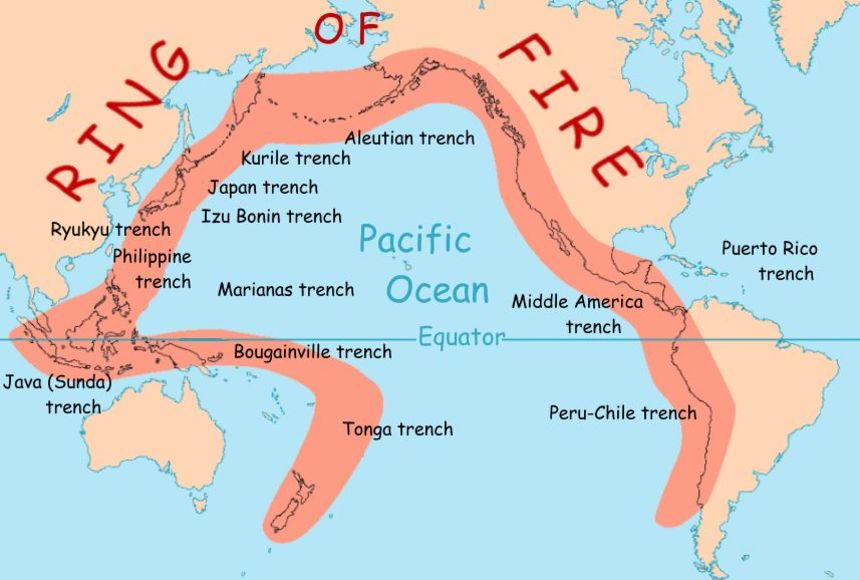
Cost of Seismic Retrofitting is about ¥1.5 million – ¥5 million (~S$13,000–S$45,000) depending on property size and structural condition.
Aside from earthquake retrofitting, older properties will likely need other serious work (new roofs, new plumbing, new electricals, for starters). You can roughly expect to pay an additional ~$100,000 on renovation works on top of your purchase price. If you’re a foreigner without permanent residency yet, that’s a bit of dough to cough out since the banks won’t loan you just yet.
Even for newer condos, small refresh works like flooring, painting, and kitchen upgrades can make a big difference in comfort and thus, will affect rental yield when you choose to rent out.
No foreign buyer restrictions
Now to the good news: Japan currently has no restrictions on foreign property ownership. You can own land and buildings outright; freehold, in your name.
However, it is important to note that financing as a foreigner is tricky unless you have local income or work with specific banks that cater to overseas buyers (often requiring larger down payments). So your ROI will be affected by your leverage options.
There are a few banking solutions both in Singapore and Japan, and we’ll just leave it up to you to figure out which pathway makes the most sense. In the case of many Singaporeans who are foreign buyers, cash is king and the best way to simplify the buying process.
More from Stacked
Freehold vs Leasehold: 3 Tests To Determine Which Is Better (Part 2)
Let’s try something different for Part 2 of our Freehold vs Leasehold debate.
Taxes, renovation rules, and property management in rural areas can also get complex; If you’re buying to let, getting a local partner or agent is key to ensuring cost optimisation so your returns and yield are still solid.
Stigmatised Properties (jiko bukken)
One of the most sensitive aspects of buying a home in Japan is the concept of the stigmatised property, known locally as jiko bukken (事故物件). These are properties where something “unfortunate” has happened; usually a suicide, accidental death, or in rare cases, a murder.
While this might sound like tabloid fodder, it’s a very real consideration in the Japanese market because of the cultural stigma attached to death in a home. Many Japanese buyers and renters will avoid such places entirely, which means they tend to sit on the market longer and sell for steep discounts, sometimes 20 to 50 per cent below comparable properties.
By law, sellers and landlords in Japan must disclose if a death has occurred in the property, but here’s the catch: this obligation only applies to the first sale or rental after the incident. Once someone else has lived there, the disclosure requirement weakens considerably, and future buyers may not be told directly. This is where it gets tricky for foreign buyers who don’t speak Japanese or aren’t familiar with the ins and outs of the area.
To protect yourself, there are a few practical steps you can take. Honesty is the best policy for most Japanese; most times, it’s enough to just ask the seller or agent explicitly if the property is jiko bukken. Though we never experienced this, friends who have bought in Japan have said they are quite open and honest about it.
You can also use dedicated websites like Oshimaland, a crowd-sourced database that maps out stigmatised properties across Japan. Though unofficial, it’s surprisingly comprehensive and widely used by locals to avoid “haunted houses.”
Buying a jiko bukken isn’t always a bad move. Some foreign buyers deliberately seek them out because of the steep discounts. But you need to go in with your eyes open: the stigma can make it harder to rent and resell later.
In a culture where harmony and purity of space matter deeply, this is not something we can overlook, as even a perfectly renovated apartment may never truly shake its bad vibes.
Property depreciation
Perhaps the biggest shock, but an extremely important thing to note for Singaporean buyers: how differently property is valued in Japan works very differently than in Singapore.
In Singapore, both HDB flats and condos are treated as appreciating assets. Even with leases ticking down, the expectation is that property prices will rise in line with land scarcity and demand.
In Japan, it’s the complete opposite: property is widely seen as a depreciating asset, especially when it comes to standalone houses.
A newly built Japanese home starts losing value almost immediately after purchase. Within 20–30 years, the physical building may be considered worthless, with its book value written down to nearly zero.
However, the land the property sits on retains value. That’s why you’ll often see abandoned homes (akiya) dotting rural areas, as the cost of demolishing or renovating them sometimes outweighs the market price of the building itself.
With the exception of purchases in major metropolitan areas where land itself is scarce, your property value is likely to stagnate or even decline over time.
For foreign buyers, this requires a mindset shift. A Japanese home shouldn’t be seen as a guaranteed nest egg or retirement hedge the way Singapore property often is. Instead, it’s closer to buying an actively consumable asset: something you enjoy living in or renting out, but not something you can flip for profit later.
When foreign investment becomes Restoration, not just ownership
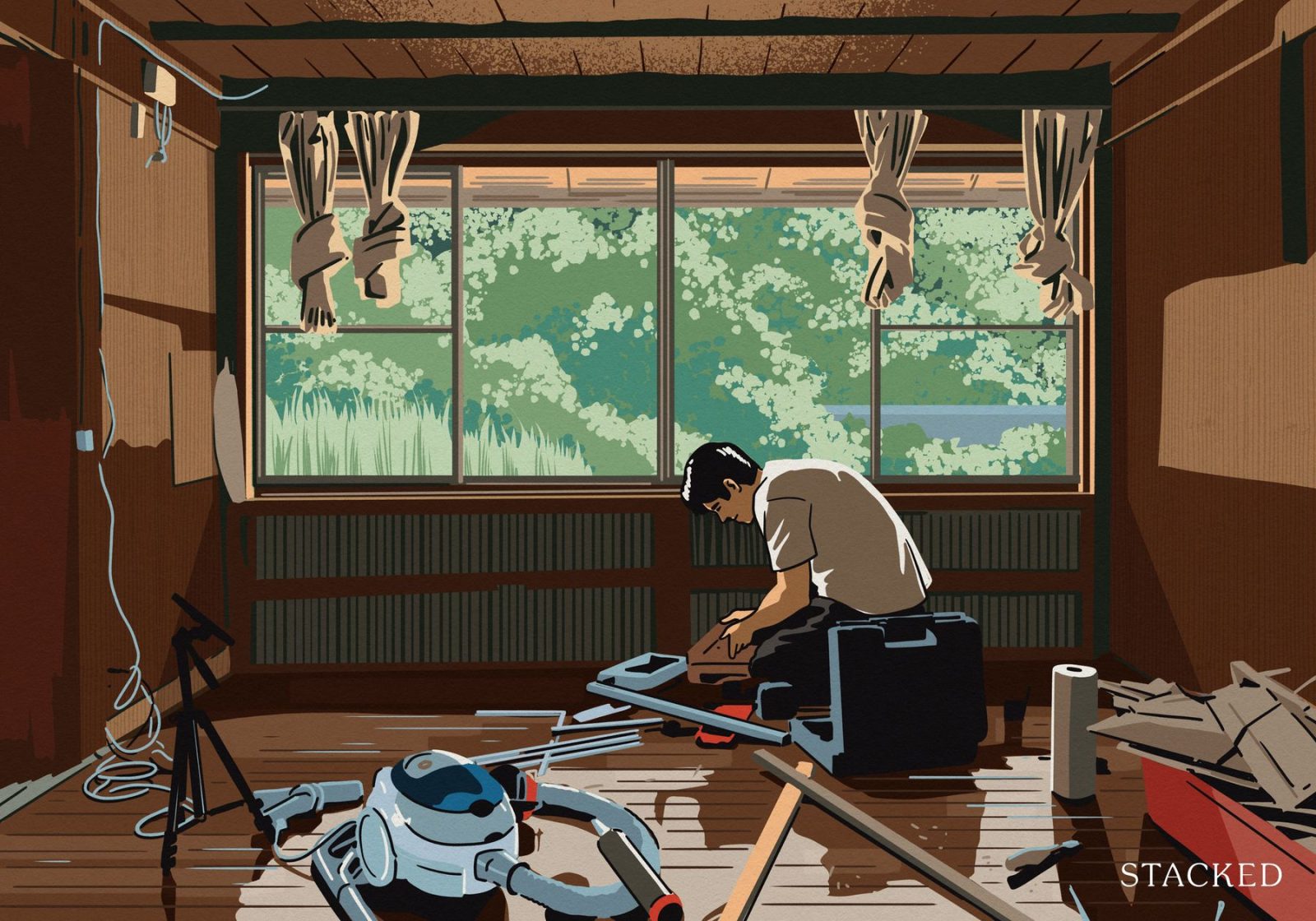
Interest in Japan’s akiya isn’t just theoretical anymore: there are plenty of real people reclaiming and restoring these abandoned homes, bringing new life to rural towns, and supporting local economies in ways that go beyond simple profit.
One prominent example is Anton Wormann, also known as Anton in Japan, a Swedish renovator who has purchased several akiya and converted them into stylish guesthouses. His Tokyo renovation (purchased and renovated for ~$110,000 USD) now rents out on Airbnb for about $500 a night, bringing in meaningful income while preserving traditional architectural elements. He is currently scaling the process to rural Akiyas.
You can take a look at his YouTube channel to see his process, but it is widely a misconception and an unfortunate symptom of capitalistic tendencies that make foreign property investment seem greedy and predatory.
In the case of Japan, it can lead to a meaningful impact as you are actively investing in keeping properties safe, all while revitalising local communities and preserving the heritage of the properties you own.
Conclusion
Investing in Japan might not be for everyone, however, it is an interesting option for those looking at affordable yet diverse property assets to buy into.
The bottom line is that Japan’s property market offers choices that Singapore can’t provide; where the barrier to entry for property is high and yields are dwindling due to upfront costs.
For Singaporeans tired of playing the BTO lottery or battling resale inflation, Japan might not just be a holiday destination. It could be your first overseas property ownership – one that pays you while giving you an excuse to visit more often.
At Stacked, we like to look beyond the headlines and surface-level numbers, and focus on how things play out in the real world.
If you’d like to discuss how this applies to your own circumstances, you can reach out for a one-to-one consultation here.
And if you simply have a question or want to share a thought, feel free to write to us at stories@stackedhomes.com — we read every message.
Melody Koh
Melody is a designer who currently works in Tech and writes for fun. Her latest obsession is analysing and writing about real estate affordability for the younger generation. Coming from an Industrial Design background, she has a strong passion for spatial design and furnishing . Having worked in Finance for almost a decade, Melody has a keen interest in sustainable investments and a nose to sniff out numbers that don't make sense.Need help with a property decision?
Speak to our team →Read next from Editor's Pick
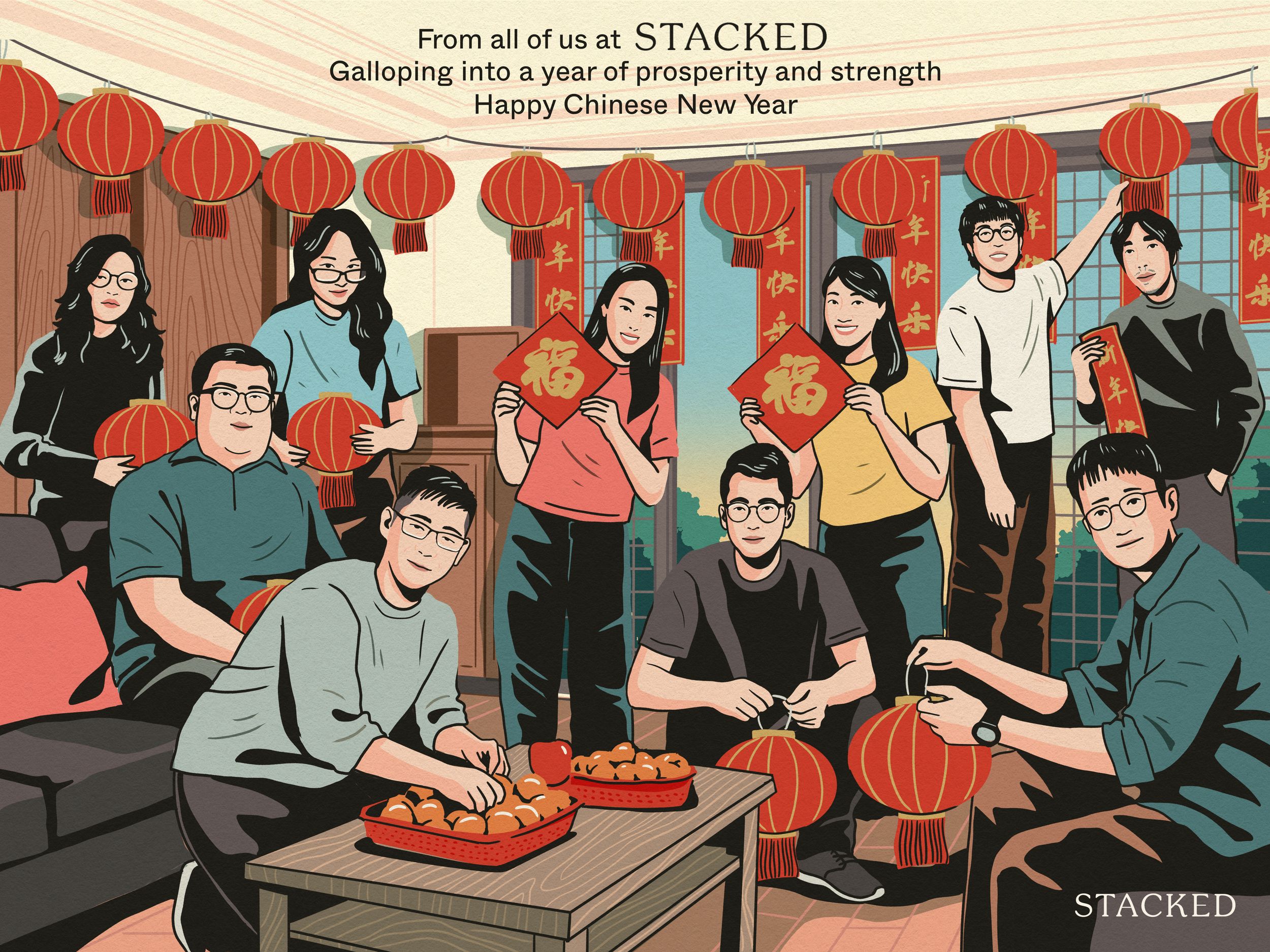
Editor's Pick Happy Chinese New Year from Stacked

Property Market Commentary How I’d Invest $12 Million On Property If I Won The 2026 Toto Hongbao Draw

Overseas Property Investing Savills Just Revealed Where China And Singapore Property Markets Are Headed In 2026

Property Market Commentary We Review 7 Of The June 2026 BTO Launch Sites – Which Is The Best Option For You?
Latest Posts

Pro River Modern Starts From $1.548M For A Two-Bedder — How Its Pricing Compares In River Valley

New Launch Condo Reviews River Modern Condo Review: A River-facing New Launch with Direct Access to Great World MRT Station

On The Market Here Are The Cheapest 5-Room HDB Flats Near An MRT You Can Still Buy From $550K






















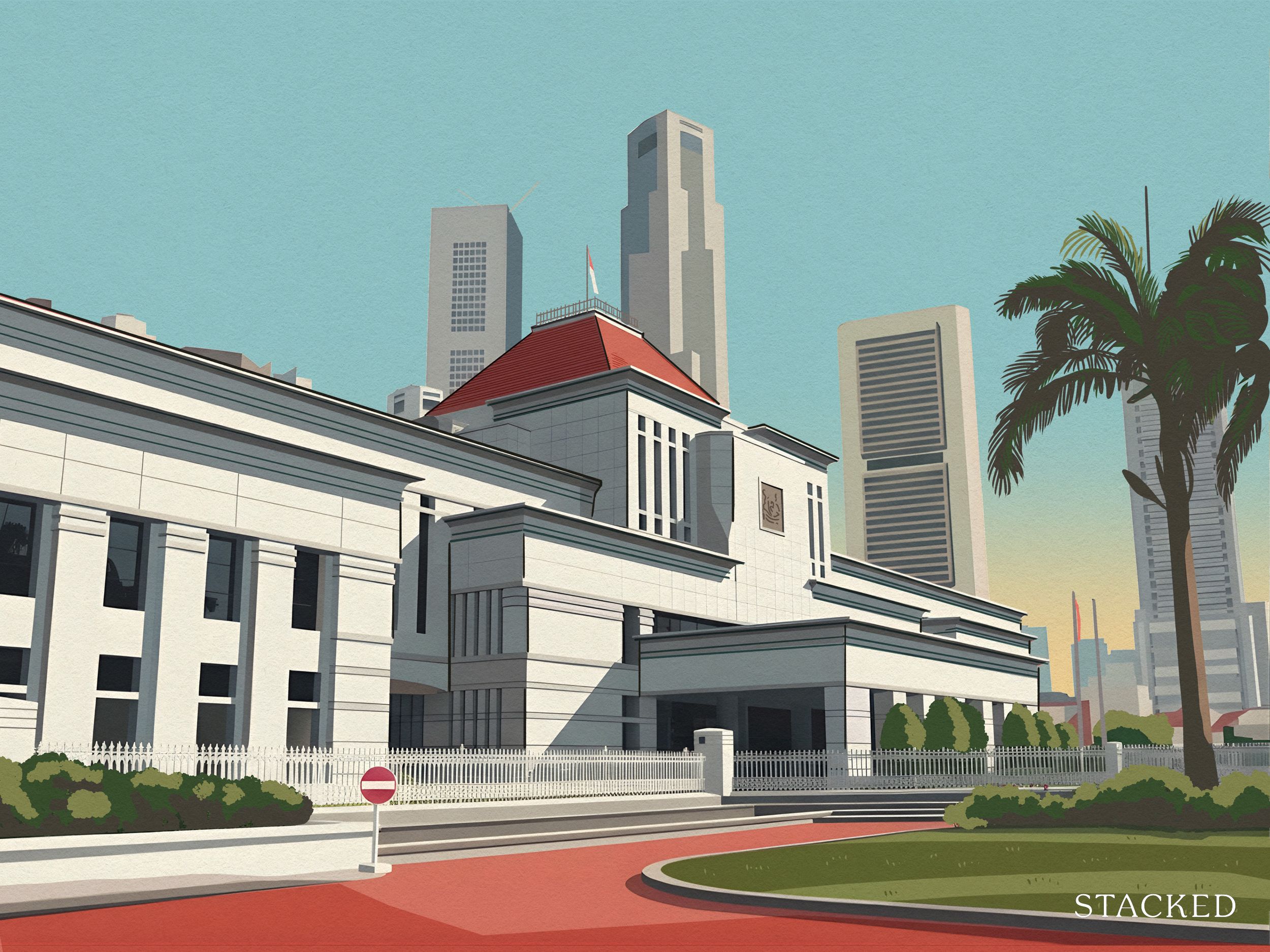













0 Comments